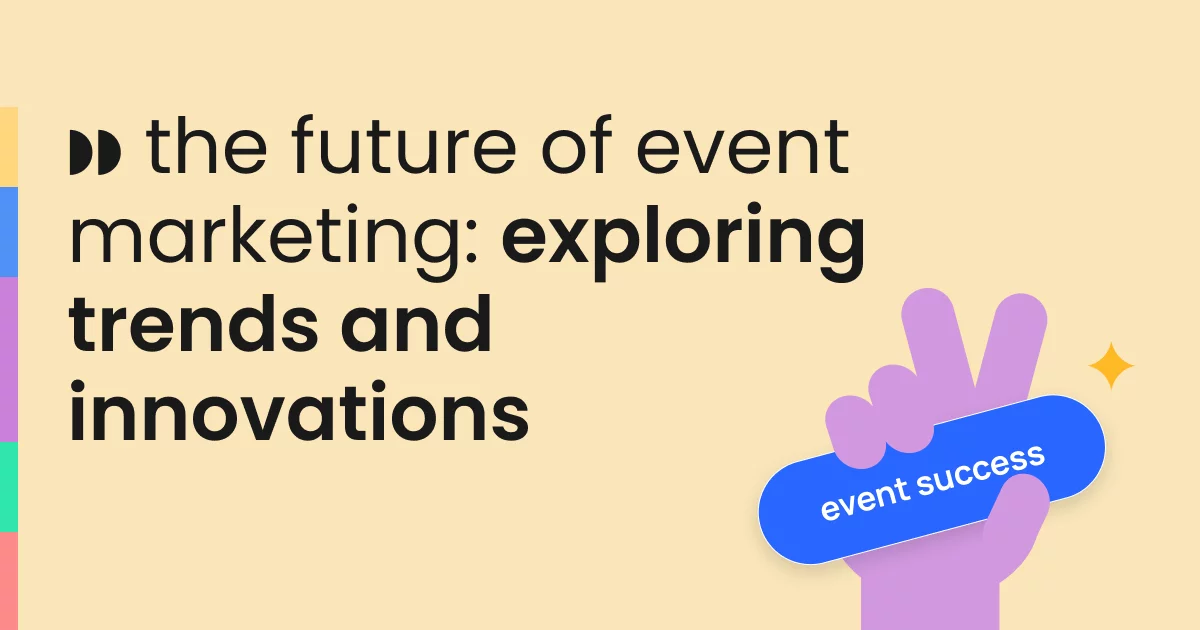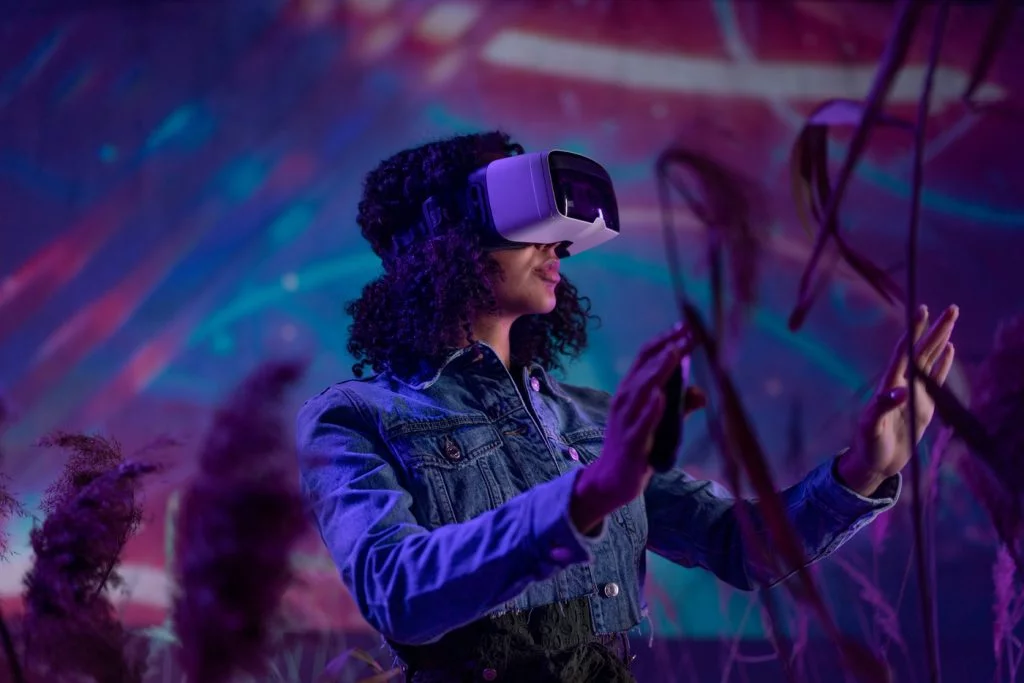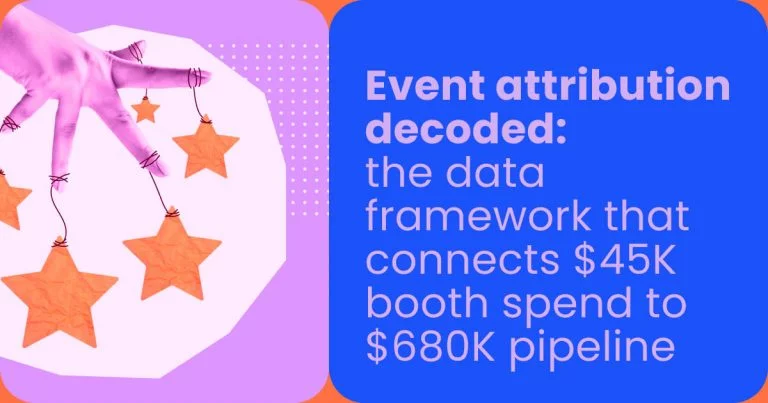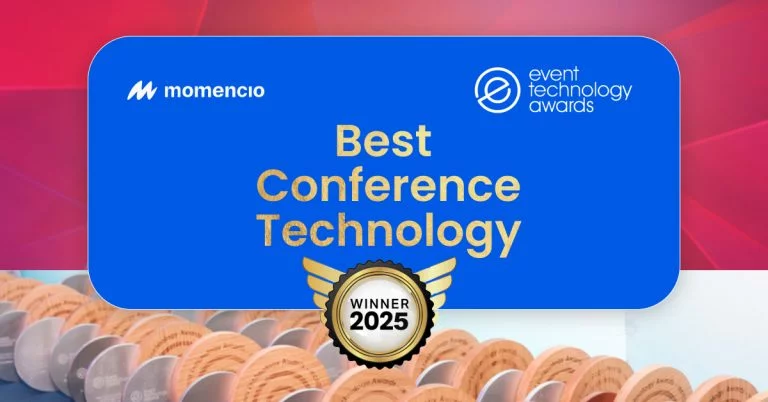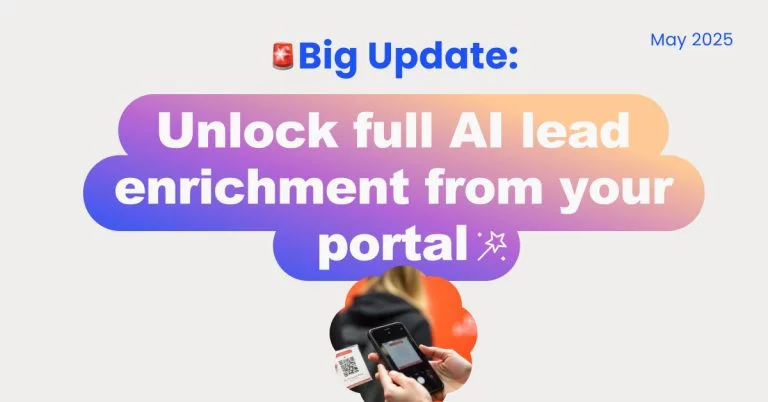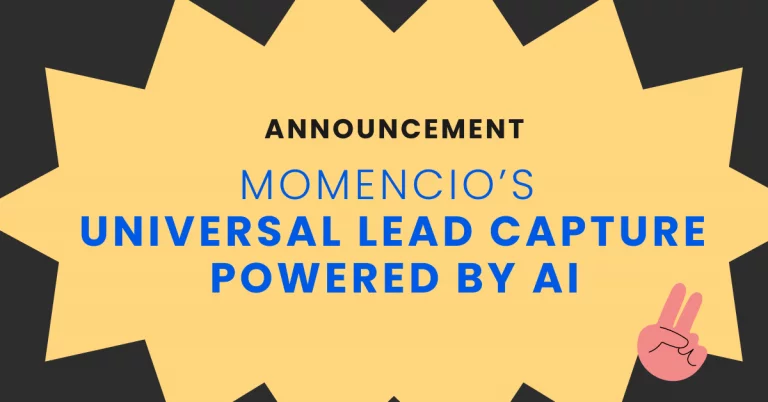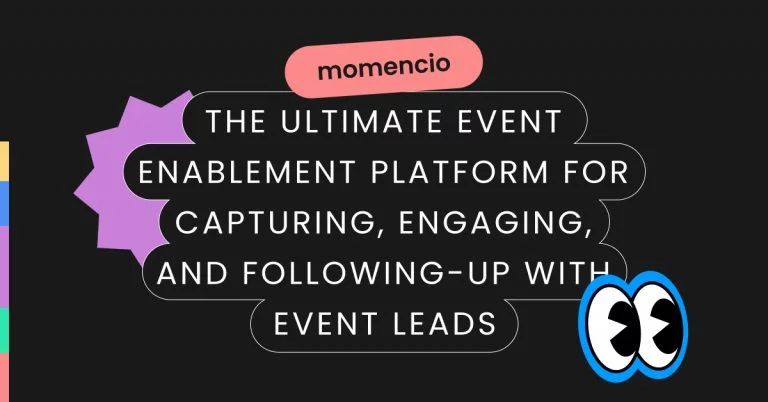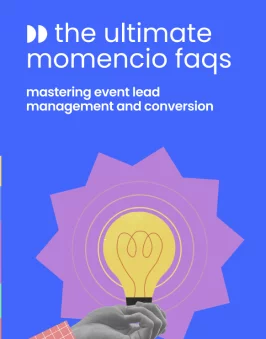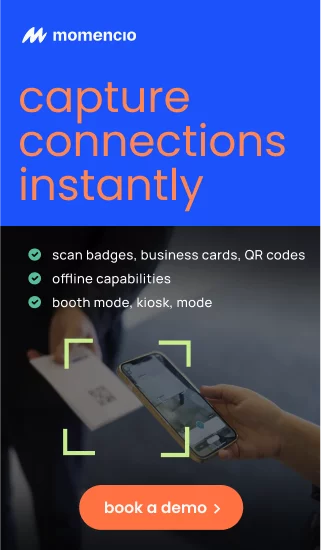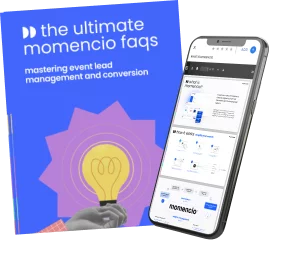Event marketing is rapidly evolving due to technological advancements and changes in customer preferences. From its basic origins to today’s dynamic and engaging techniques, event marketing has proven to be a successful tool for businesses to connect with their audience on a personal level. This essay will examine the history of event marketing and identify significant themes that will determine its future.
From virtual reality experiences to data-driven personalization, we’ll look at how these innovations change how businesses hold events and interact with their audiences. Join us as we look forward to the future of event marketing.
TL;DR: Stay ahead with the latest trends and innovations in event marketing, including hybrid event models, personalized attendee experiences, and advanced analytics. These future-forward strategies will shape how businesses engage audiences and drive results in the event industry.
What does future of event marketing seem like?
Interests and information are changing faster than ever before. What was previously normal is becoming obsolete as new words and ideas emerge. Unsurprisingly, a business based on people’s interests would have to adjust as quickly as these developments.
Furthermore, when new areas of interest, entertainment, and technology emerge, the events sector must stay up to maintain bringing people together. The audience is growing more discerning and dissatisfied with events that lack organization, information, and enough space.
Event professionals are known for their ability to arrange large-scale events. They are also becoming increasingly active in other elements of a company, like marketing and sales. What was once a little entertainment and product sales element has grown into a whole business. This new event sector also has its own set of trends and technology.
Artificial intelligence
AI is an excellent approach to automate some mundane tasks that will occur before, during, and after the event. Although AI can generate emails and messages for users, only the AI platform can customize them.
You may use AI to greet attendees when they scan a QR code or utilize contact-free methods to check into the event. Then, you may offer activities that AI predicts would be most interesting to each individual. AI may also deliver and customize greetings to attendees.
Virtual reality (VR)
Getting closer to prospective customers is essential for persuading them to purchase your goods or services. While companies anticipate fresh technologies to provide a tailored customer experience, virtual reality has the potential to influence every stage of the process significantly. After all, it allows organizations to appeal to the emotional side of their target audiences, significantly increasing brand loyalty and customer lifetime value.
Virtual reality is more intimate than ever before, and it always wins. By 2025, virtual reality will be the dominant marketing trend. Customers will have an incredibly emotional experience when shopping for product brands with bright, engaging advertising.
Trade shows
Trade shows are an effective venue for building professional relationships and gathering leads. Marketers are increasingly adopting strategies for success at trade shows, such as focused consumer engagement and interaction monitoring systems, to increase their chances of success.
Exhibitors can maximize their presence at an event and accurately analyze the impact of their participation thanks to these tactics.
Personalization
Personalization at scale is tailoring event experiences for individual participants, even at large-scale events. Event professionals customize content, networking opportunities, and agendas to guests’ interests and goals using data-driven insights and innovative approaches.
Event professionals may use matching algorithms or networking tools to help participants make meaningful connections based on their hobbies, industry, or ambitions. This improves networking by ensuring guests engage with others who share their interests.
Social media
As social media plays an increasingly crucial part in consumers’ lives, event organizers must adapt. According to a recent poll, 64% of attendees would choose which events to attend based on what they see online.
Utilizing social media to advertise events is a long-term trend in the events sector. We recognize that social media does not replace conventional advertising strategies like fliers or word-of-mouth marketing. It does, however, influence how individuals access information and decide whether to attend an event. Furthermore, social media remains one of the most effective tools to gauge the success and acceptability of events and ideas.
Gamification
Gamification provides an ideal opportunity to incorporate friendly competition into the event mix, driving engagement efforts and increasing enjoyment.
Leading event management software often includes a game element that allows event organizers to design challenges, such as trivia questions after a session or visiting an exhibitor booth. Attendees receive points by typing the appropriate codes into their event app. Just promote your leaders and provide some tempting, wonderful incentives.
Sustainability
We used to build technology without considering what they were doing to our environment. We are now worried about the implications of new technological advancements on the world around us. So, we discover methods to generate renewable energy solutions while retaining our current lives. The events industry is no different. It is critical to adapt and promote long-term events.
The most significant components in preparing these events are economic and climatic issues, collaborations, promotion of sustainable behavior, support of healthy living, use of responsible sources, and leaving a sustainable legacy.
Security and privacy
Privacy laws are rapidly evolving. In many areas of the globe, customer personal data is now regarded as sensitive as financial information. It demonstrates how essential we are as customers while indicating how effectively we must safeguard the data of our guests.
What personal information may we get from event registrants? How should their personal information be stored? What can we do with their information? How long will we be able to store the data on our servers? How long may we continue to send marketing emails to prior event attendees? Event organizers must use extreme caution while handling event data.
Rise of micro-events: small-scale, big impact
As the events industry evolves, micro-events are emerging as a powerful trend shaping the future of event marketing. These intimate, small-scale gatherings allow businesses to create highly personalized and engaging experiences, catering to specific audience segments or niche markets.
Why micro-events are gaining traction
Enhanced personalization
Micro-events provide a unique opportunity to tailor every aspect—content, setting, and interactions—to the needs of a focused group. This personalization increases attendee engagement and fosters meaningful connections.
Cost-effective marketing
Compared to large-scale conferences or trade shows, micro-events require fewer resources while delivering high ROI. By targeting a smaller audience, businesses can achieve their goals without overextending budgets.
Hybrid-ready format
The flexibility of micro-events makes them ideal for hybrid setups, combining in-person intimacy with the reach of virtual participation. This ensures a wider audience without compromising the quality of engagement.
Applications of micro-events in marketing
Product launches
Introduce new products to a select group of key stakeholders, allowing for in-depth demonstrations and immediate feedback.
Thought leadership roundtables
Position your brand as an industry leader by hosting intimate discussions with experts and decision-makers.
VIP customer appreciation
Strengthen relationships with high-value customers by offering exclusive, curated experiences that show genuine appreciation.
Technology’s role in micro-events
Event tech plays a crucial role in the success of micro-events:
- AI-driven personalization: Suggest relevant content, sessions, or networking opportunities to attendees.
- Interactive platforms: Enhance virtual or hybrid micro-events with features like live Q&A, polls, and breakout rooms.
- Real-time analytics: Track engagement and adapt strategies instantly to maximize impact.
The future of micro-events
As customer expectations shift toward curated and meaningful experiences, micro-events will continue to rise in prominence. By delivering high-impact, personalized interactions, these events are redefining how businesses connect with their audiences, making them a cornerstone of modern event marketing strategies.
Takeaway
Since its start, event marketing has gone a very long way. Despite the issues the sector faces, it is apparent that it is evolving and adapting. The future of event marketing will be more imaginative, engaging, and individualized. Brands that can capitalize on these trends and adapt will thrive in the ever-changing environment of event marketing.
As we investigate the future of event marketing and industry trends, it becomes clear that momencio’s capabilities perfectly align with event planners’ and field marketers’ demands and goals. momencio’s extensive event planning tools, real-time information, and streamlined management enable professionals to maximize event ROI and create exceptional in-booth experiences.
